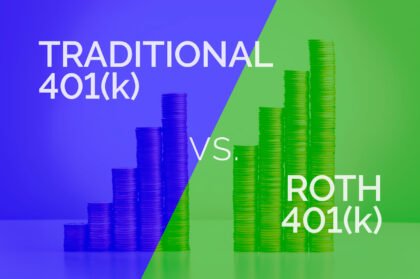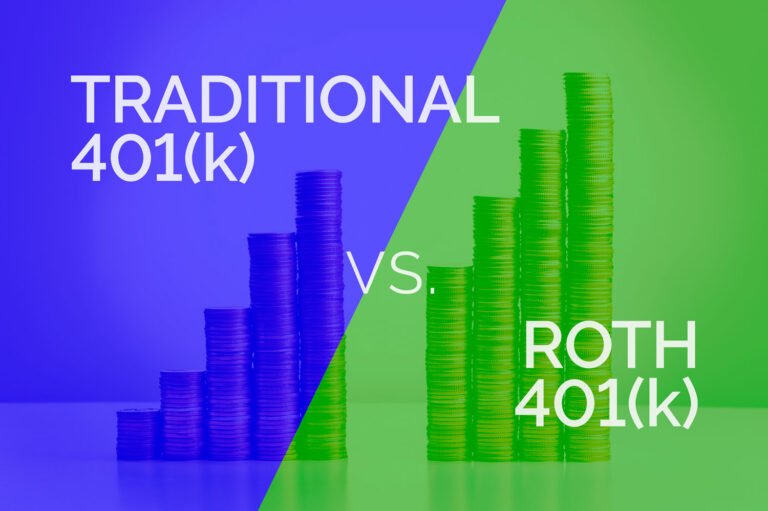Have you ever wondered how long you need disability insurance? It’s a complex question and there are many individual factors that determine the best time to terminate disability insurance coverage. So, let’s start with the basics—what is disability insurance? Disability insurance serves as a financial safety net, providing income protection in the event of a disabling injury or illness that prevents you from working. Here’s a great article laying out the basics of Disability Insurance. As you approach your 60s, the question arises: Do you still need disability insurance? In this comprehensive guide, we’ll delve into the factors to consider when evaluating the necessity of disability insurance during your 60s and (hopefully) provide clarity for those navigating this important consideration in their retirement years.
Table of Contents
Reasons Why You Likely Don’t Need Disability Insurance in Your 60s
Nearing Retirement Age
- Retirement Plans: Individuals in their 60s are often in the retirement planning phase or have already retired. Retirement plans typically include strategies to replace work income with retirement savings, pensions, and Social Security benefits.
- Income Replacement: Disability insurance is designed to replace lost income due to inability to work. As retirees no longer rely on employment income, the need for this type of income replacement diminishes.
Social Security and Other Retirement Benefits
- Social Security Disability Insurance (SSDI): SSDI provides income support to individuals who are unable to work due to disability. While eligibility criteria are stringent, those who qualify receive financial assistance.
- Retirement Benefits: Retirement plans such as Social Security, pensions, and retirement savings can serve as sources of income during retirement, reducing the need for additional disability insurance coverage.
Coverage Limits and Renewals
- Maximum Coverage Ages: Many disability insurance policies have age restrictions, often capping coverage at around 65 or 70 years old. This means individuals in their 60s may be nearing or surpassing the maximum coverage age, making it challenging to renew or purchase new policies.
- Limited Eligibility: Age-related restrictions may limit eligibility for disability insurance coverage, particularly for those in their late 60s. This can pose challenges in obtaining new coverage or renewing existing policies.
Individuals in their 60s may find that the combination of retirement plans, Social Security benefits, and age-related restrictions on disability insurance coverage diminishes the need for additional protection against income loss due to disability. However, individual circumstances vary, and consulting with a financial advisor can provide personalized guidance on assessing the necessity of disability insurance during this stage of life.
Exceptions: When Disability Insurance Might Still Be Needed in Your 60s
While the need for disability insurance may diminish for many individuals in their 60s, there are exceptions where disability insurance remains valuable. Whether due to delayed retirement plans, income shortfalls in retirement, or pre-existing disabilities, disability insurance can offer crucial financial protection during this stage of life. Let’s take a closer look at the individual circumstances that will help you determine the appropriate level of coverage needed for peace of mind in your 60s.
Delayed Retirement Plans
- Continued Employment: Some individuals in their 60s may choose to work beyond traditional retirement age, either out of financial necessity or personal preference.
- Income Protection: Disability insurance can provide valuable income protection for those who plan to continue working well into their 60s and beyond. In the event of a disability that prevents them from working, disability insurance can help replace lost income, providing financial security during this extended working period.
Shortfall in Retirement Income
- Insufficient Retirement Funds: Despite retirement planning efforts, some individuals may find that their retirement income sources, such as Social Security and pensions, do not fully replace their pre-retirement income.
- Income Gap: Disability insurance can help bridge the gap between available retirement income and the income needed to maintain one’s desired standard of living. By providing a supplementary source of income in the event of a disability, disability insurance can help ensure financial stability during retirement.
Existing Disability Prior to Your 60s
- Continuation of Benefits: Individuals who have experienced a disability prior to reaching their 60s and are already receiving disability benefits may still have a need for disability insurance.
- Maximization of Coverage: Disability insurance policies typically have a maximum benefit period, after which benefits cease. For individuals with pre-existing disabilities, having additional disability insurance coverage can help ensure continued income protection once their existing benefits expire.
Factors to Consider When Making Your Decision
When considering the need for disability insurance in your 60s, it’s essential to carefully evaluate factors such as your health status, retirement income sources, the cost of disability insurance, and potential long-term care needs. Let’s further explore the factors that help inform your disability insurance decision.

Current Health Status
- Assessment of Health: Evaluate your current health status, including any existing medical conditions or risk factors for disability.
- Healthcare Professional Consultation: Consider consulting with healthcare professionals to assess your overall health and potential risk of disability in your 60s.
- Impact of Health on Work: Reflect on how any health concerns may impact your ability to work and earn income, as well as your potential need for disability insurance coverage.
Retirement Income Sources
- Evaluation of Income Streams: Analyze your anticipated sources of retirement income, such as Social Security benefits, pensions, retirement savings, and other investments.
- Income Sufficiency: Assess whether your projected retirement income sources will adequately support your financial needs during retirement, taking into account potential disability-related expenses.
- Income Replacement Needs: Determine if additional income protection through disability insurance is necessary to supplement existing retirement income sources and ensure financial security in the event of a disability.
Cost of Disability Insurance (if available)
- Premium Analysis: Evaluate the cost of disability insurance premiums in relation to your budget and financial resources.
- Comparison of Benefits: Compare the benefits provided by disability insurance policies against the cost of premiums, considering factors such as coverage limits, waiting periods, and benefit durations.
- Affordability Consideration: Determine whether the potential benefits of disability insurance outweigh the financial investment required in premiums, taking into account your overall financial situation and priorities.
Long-Term Care Needs
- Assessment of Long-Term Care Costs: Consider the potential costs associated with long-term care services, such as nursing home care, home healthcare, or assisted living facilities.
- Financial Impact: Evaluate how long-term care expenses might affect your financial stability and retirement savings, particularly in the event of a disability.
- Integration with Disability Insurance: Determine if disability insurance coverage adequately addresses potential long-term care needs or if additional long-term care insurance may be necessary to supplement your financial protection.
In Conclusion
As individuals in their 60s contemplate the need for disability insurance, several key considerations emerge. While many may find that the combination of retirement plans, Social Security benefits, and age-related limitations on disability insurance coverage diminishes the necessity for additional protection, there are exceptions to this general rule.
Factors such as delayed retirement plans, income shortfalls in retirement, pre-existing disabilities, current health status, retirement income sources, the cost of disability insurance, and potential long-term care needs all play crucial roles in the decision-making process.
Ultimately, for those navigating this decision, consulting with a financial advisor is highly recommended. A financial professional can provide personalized guidance tailored to your individual circumstances, helping you assess your needs, explore available options, and make informed decisions to safeguard your financial future during retirement.
By carefully considering these factors and seeking expert advice, individuals in their 60s can take proactive steps to protect themselves against the financial impact of disability and ensure greater peace of mind in their retirement years.
Taking Action
For readers in their 60s considering disability insurance, now is the time to take proactive steps to secure your financial future. Here’s what you can do next:
- Research Disability Insurance Options: If you determine that disability insurance may be beneficial for your situation, take the time to research available options. Look into various insurance providers, compare policy features and benefits, and understand the terms and conditions of each policy.
- Contact a Financial Advisor: Seeking personalized advice from a qualified financial advisor is essential in navigating the complexities of disability insurance and retirement planning. A financial advisor can assess your unique circumstances, help you understand your options, and provide tailored recommendations to meet your financial goals and needs.
By taking these proactive steps, you can empower yourself to make informed decisions about disability insurance and ensure greater financial security during your retirement years. Don’t hesitate to reach out to professionals who can guide you through this process and help you achieve peace of mind for the future.


